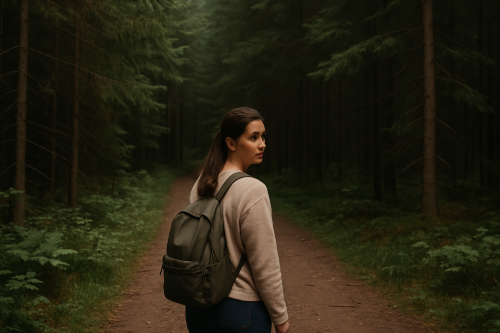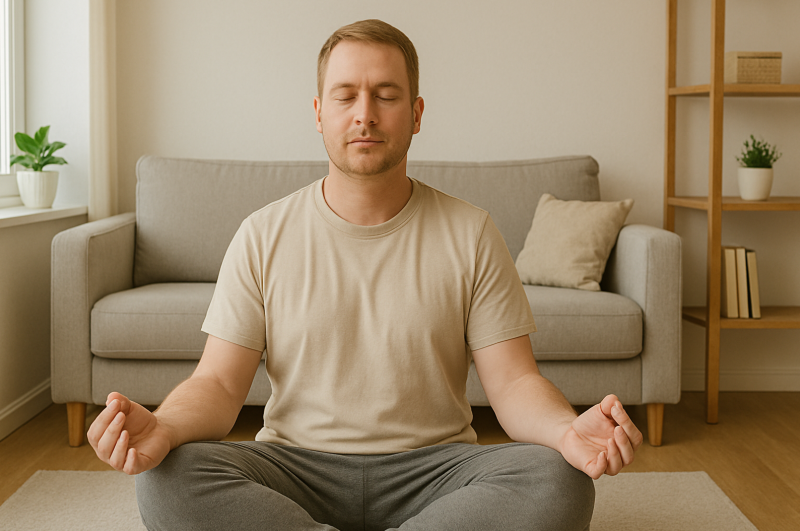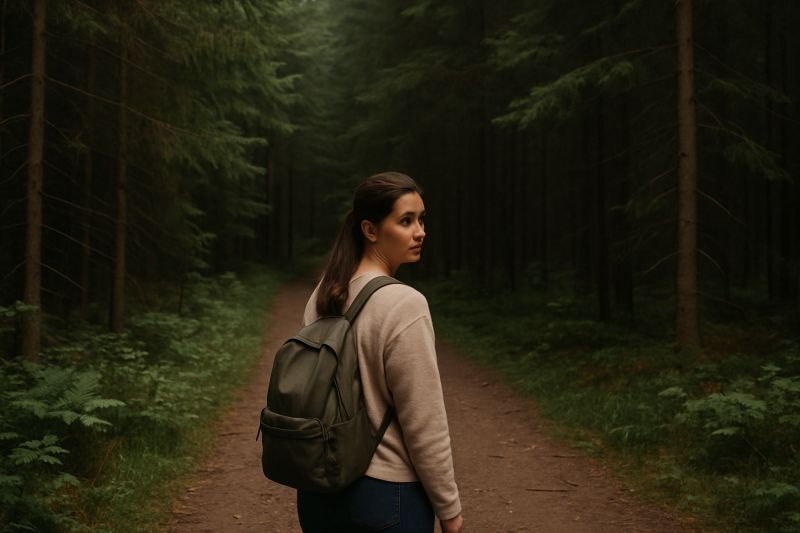
Nature doesn’t feel calming for everyone. If the outdoors makes you anxious, your fear is valid. This article explores why and how to support yourself gently.
By Sergio Toledo
Editor-in-Chief, Heed to Heal
Introduction
Nature is often seen as a place of peace. People talk about the calm that comes from walking in the woods or the healing effect of fresh air and quiet landscapes. But for some, being surrounded by the natural world doesn’t bring calm. It brings tension. It can make the chest tighten, the heart race, and the mind start scanning for danger.
Not everyone feels safe in the wild. For some, open spaces, dense forests, deep water, or even quiet trails can feel unsettling or emotionally overwhelming. While society often romanticizes nature as a cure-all, the truth is that anxiety can follow us anywhere — and for some, it feels stronger in natural settings.
This kind of fear is rarely talked about. It’s often misunderstood or dismissed. But if you’ve ever felt anxious while hiking, uneasy in a cabin, or afraid to venture far from the road, you’re not alone. That discomfort is real, and it deserves compassion, not shame.
When Nature Feels Too Big, Too Quiet, or Too Unknown
The natural world has its own rhythm. It’s wide, open, and full of elements we can’t control. For people who find comfort in structure or familiarity, stepping into the wilderness can be a shock to the system. There are no walls, no predictable background noise, and sometimes, no one else around. For some, that freedom feels grounding. For others, it feels unsafe.
Anxiety often shows up when we’re in unfamiliar environments. In nature, this can look like a racing mind trying to predict every possible danger. What if I get lost? What if there’s an animal? What if no one can hear me if something happens? These thoughts can feel intrusive, and they don’t always go away just because the scenery is beautiful.
It doesn’t help that many people are told they “should” feel relaxed in nature. When you don’t feel that way, it can create shame. You might wonder what’s wrong with you or why everyone else seems to enjoy something that makes your body feel tense. But fear is not weakness. It’s often a sign that your nervous system is reacting to something it doesn’t fully trust — and that is something to honor, not ignore.
Possible Roots of Outdoor Anxiety
There’s no one reason why someone might feel anxious in natural settings. For many, the fear is layered. It may come from a specific experience, a general sensitivity, or the unpredictability of the environment itself.
Here are a few possible roots of this fear:
- Lack of control: In nature, there are fewer clear boundaries or safety cues. You may feel exposed or unsure where the nearest help is.
- Sensory overwhelm: Birds calling, leaves rustling, bugs buzzing, or wind rushing can all feel overstimulating. For some, especially those with sensory sensitivity, these sounds can make it hard to relax.
- Past experiences: A bad memory, a fall, getting lost, or being made to do something outdoors as a child might have left a lasting impression.
- Isolation anxiety: Being far from other people or places can make you feel vulnerable, even if the area is technically safe.
- Pressure to enjoy it: Feeling like you’re supposed to love being outside can make the anxiety worse if you don’t. The inner conflict adds another layer of stress.
Understanding the root can help you approach nature on your own terms. You don’t have to force yourself into settings that feel wrong for your body just because others find them peaceful.
You Can Redefine What Nature Means to You
You don’t have to go deep into the woods or camp under the stars to have a connection with nature. There are many ways to engage with the natural world that still feel safe, comfortable, and calming to your system. The goal isn’t to push through fear. It’s to find where you feel regulated and at ease.
Maybe your version of connecting with nature looks like tending to houseplants, sitting on a porch with a cup of tea, or walking around a small park near your home. These experiences count. They are valid, meaningful, and enough. You don’t need to hike a mountain to prove that you appreciate the earth.
Over time, your relationship with the outdoors might evolve. Or it might stay exactly where it feels right. There’s no standard you have to meet. Your connection to nature can be soft, subtle, and entirely your own. Fear of the wild doesn’t make you disconnected — it makes you aware. And awareness is a strength, not a flaw.
Final Reflections
The outdoors is not automatically soothing for everyone. If natural spaces bring up anxiety instead of calm, that doesn’t mean you’re broken. It means you’re paying attention to how your body and mind respond to different environments. That kind of self-awareness is deeply valuable.
You don’t have to ignore your discomfort to fit in. You don’t have to force yourself into places that feel wrong to prove anything. Respecting your boundaries is also a form of self-care. Your relationship with nature can be gentle, slow, and entirely on your terms.
Let the forest be a metaphor, not a requirement. You can grow roots, find peace, and breathe deeply — wherever you feel most safe.
References
- Psychology Today. “Fear of Nature: When the Outdoors Triggers Anxiety.” 2023.
- National Institute of Mental Health. “Specific Phobias and the Nervous System.”
- Greater Good Magazine. “You Don’t Have to Love Nature to Be Whole.” 2022.
- Calm Clinic. “How Environment Affects Anxiety.” 2023.
Originally published by Heed to Heal, 09.16.2025, under the terms of a Creative Commons Attribution-NonCommercial-NoDerivatives 4.0 International license.







